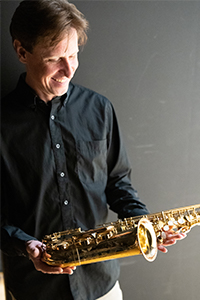Henning Schröder
Programs
Saxophone Institute

German saxophonist Henning Schröder has concertized at major venues throughout Europe, Asia and North America, both as a soloist and in groups as diverse as the Berlin Philharmonic Orchestra and Max Raabe & Das Palast Orchester. Dr. Schröder holds the baritone saxophone chair in the Capitol Quartet. Together with his longtime duo partner, pianist Yu-Lien The, Dr. Schröder explores both the standard and contemporary repertoire of his instrument. He frequently collaborates with composers and has performed world premieres of solo or chamber compositions by Frederic Rzewski, Anna Clyne, Carter Pann, and Branford Marsalis, to name just a few.
A Yamaha Performing Artist, he has been featured in performances, lectures, clinics and as a composer at international conferences and festivals in Europe and North America, including the Midwest Clinic, SEAMUS, World Saxophone Congresses, Biennial Conferences of the North American Saxophone Alliance as well as the Schleswig Holstein Musikfestival. Dr. Schröder holds degrees in saxophone performance and saxophone pedagogy from the University of Arts Berlin, Western Michigan University and the University of Illinois. He studied with Debra Richtmeyer, Johannes Ernst, Trent Kynaston and Chip McNeill. Dr. Schröder teaches at Western Michigan University and he spends his summers in North Carolina as a member of the Brevard Summer Music Festival Artist Faculty.